
Celebrating Arbor Day 2025: Alpine Marine Services Plantation Drive at Port Qasim
Together, we move towards a greener tomorrow – as part of pledge to a cleaner and greener environment, Alpine Marine Services, in alliance with the Port Qasim Authority, organized a plantation drive at Port Qasim on August 18, in celebration of Arbor Day. With a shoreline extending over 1,050 km, Pakistan has notable maritime potential. Over the years, the country has made prominent progress in developing deep-sea ports. However, despite the government’s declaration of 2020 as the "Year of the Blue Economy", tangible development in this sector has remained limited, aside from the revision of the national shipping policy. The collaborative plantation initiative is a small yet impactful step in promoting environmental conservation and advancing sustainable development in Pakistan's maritime sector. The planting of numerous saplings during the event reflects our shared responsibility to protect and nurture the natural ecosystem along our coastlines.
|
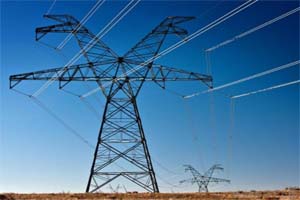
The Indicative Generation Capacity Expansion Plan (IGCEP) 2025–35
Prepared by the Independent System & Market Operator and submitted to energy regulator The Indicative Generation Capacity Expansion Plan (IGCEP) 2025–35, outlines a major shift in the energy mix by 2035, electricity is to come from renewable sources—mainly hydro, solar, wind and renewables, while phasing out the country’s dirtiest fuels. Pakistan has launched an ambitious $55 billion plan to transform its power sector and it includes new dams, solar parks, wind corridors and nuclear power plants over the next decade and will lower costs and reduce emissions. Hydropower will remain the largest contributor, while solar is expected to rise with a conventional thermal source will drop, and full elimination furnace oil. The plan anticipates annual demand growth of 4.4pc, with peak load rising by 2035 and calls for an expansion of generation capacity.
|

Oil and Gas Sector to Adopt Digital Payments
All licensed OMCs, gas utilities, CNG stations, LPG and LNG operators, refineries, and lubricant marketers and other entities under the regulation of OGRA are advised to adopt digitize payments solutions in line with the government approach for a cashless economy. For on time implementation of digital transactions all entities are instructed to coordinate with banks with banks, microfinance institutions, or electronic money institutions and obtain free-of-cost Raast QR codes. According to the directives all OGRA registered entities must introduce and display digital payment options, particularly the SBP's Raast QR Code, at their outlets with full compliance by October 31, 2025 to supports SBP's digitization drive no outlet will be allowed to facilitate customers opting for cash transactions and to improve financial inclusion, transparency, and operational efficiency across the energy sector.
|

OGDCL Revamp A New Logo and Tagline
Pakistan’s largest exploration and production (E&P) company, Oil & Gas Development Company Limited has unveiled a new logo and tagline. The updated visual identity will be applied with immediate effect across all company materials and platforms. The company has requested Pakistan Stock Exchange and London Stock Exchange to update their records and notify TRE certificate holders accordingly. The change, pertains solely to the company’s visual branding and is a is part of OGDCL’s broader efforts to modernize its corporate image and does not affect its legal name, principal business activities, or operations.
|
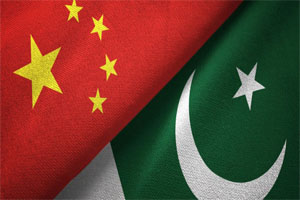
Pak – China Agriculture Cooperation
China’s cooperation in agriculture has decisive role in transforming the sector through innovation, technology transfer, and institutional support in exchange programs between Pakistani and Chinese universities. Backbone of Pakistan’s economy, agriculture is facing the climate change, water scarcity, and population pressures. Expertise of China in modern farming technology and mechanization, water-efficient irrigation, and joint research initiatives in seed development, biotechnology, crop diversification in developing climate-resilient crop varieties with hands-on training for Pakistani youth and professionals and farming practices provides valuable lessons for Pakistan. Delegates to identify new horizons for bilateral investment and collaboration in Punjab’s agricultural lands and Gilgit-Baltistan’s proposed Special Economic Zone after planned visit to the fields of enhance rural livelihoods and strengthen national exports.
|
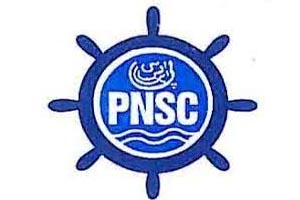
PNSC Added Two Aframax Tankers
As a part of chasing new avenue in business nationally and internationally PNCS is vigorously expanding efforts to rejuvenate the maritime economy and upgrade supply chain against external shocks. Enhancing maritime and energy transport capacity PNSC has added two Aframax-class tankers, Swan Lake and P. Alik and expanded its fleet from 10 to 12 and ambition to grow the fleet to 20 vessels by year-end. Expanding more cargo vessels in the national fleet will decrease reliance on foreign shipping lines, save foreign exchange, increase revenue, reinforce the energy security efficiently, and strengthening Pakistan’s capacity of the national shipping sector.
|
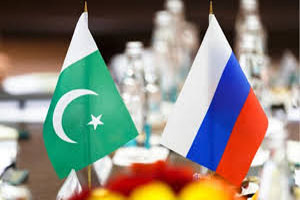
Pakistan – Russia Insulin Manufacturing Project
Govt. of Pakistan eyes joint venture to boost pharma sector and ensure technology transfer from Russia and expand bilateral economic ties with access to essential medicines for the Pakistan. Pakistan is sightseeing a joint venture with Russia to establish local insulin manufacturing facilities, an initiative to breakthrough in the country’s pharmaceutical sector. Implementation of the insulin project would be in phases with strict regulatory and legal compliance from both companies is essential to ensure successful bulk production and technology transfer expected in three years. The new pharmaceutical avenue is predictable to fascinate foreign investment, open new commercial cooperation, and lay the foundation for long-term collaboration in the pharmaceutical industry.
|
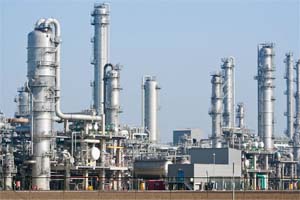
Pakistan’s New Industrial Policy
A new Bankruptcy Law has been proposed under Pakistan’s recently formulated Industrial Policy, providing debtors with a one-year grace period for repayment obligations. This complements the Corporate Rehabilitation Act (2018) and is aimed at streamlining the resolution of non-performing loans (NPLs) and distressed manufacturing units. To ensure the smooth implementation of the Industrial Policy and resolution of industry-related challenges. A committee comprising all stakeholders has been established to oversee execution, while eight sub-committees will focus on infrastructure development to support industrial growth. The proposed bankruptcy provision helps align Pakistan with global best practices and promotes confidence among both domestic and foreign investors.
|
|
© 2025 Alpine Marine Services Private Limited
all rights reserved
|
|
|